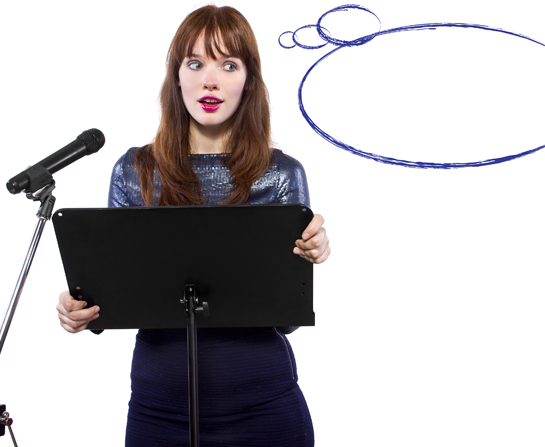Social-phobic?
May 7, 2022 Return

It is your turn to speak. You step behind the podium… and promptly forget those words that you have rehearsed so many times over the last few days. Your heart pounds and your hands tremble as you begin to feel something akin to panic. Worst of all, you recognize this feeling. It happens every time you have to do something in front of a crowd.
Welcome to the world of the socially anxious.
Are you socially anxious?
According to the Malaysian Psychiatric Association (MPA), “Social anxiety disorder is the third largest mental health problem in the world. Research has shown that at any given time, 7 out of every 100 people suffer from this disorder, and 13 out of 100 people will experience it sometime during their life.”
It is normal to feel anxious and worried when one is made the centre of attention, especially in unfamiliar social situations, such as meeting new people, performing on stage or going for a job interview. Unlike the occasional butterflies in the stomach, however, social phobia sufferers experience intense fear and nervousness that can get in the way of their normal functioning. They get anxious even thinking about certain social situations days before the actual event and even go to unusual lengths to avoid it. Even if they make it through, the overpowering anxiety can linger on for days, and could become a recurring condition.
For instance, an inexperienced public speaker may feel nervous the first few times but with gradual practice, addressing a crowd soon becomes second nature. Someone with social anxiety never gets over stage fright, despite frequent repetition and practice.
Socially anxious individuals are plagued by an overwhelming, usually unrealistic self-consciousness. They fear their actions are being judged and scrutinized, often worrying about being embarrassed for behaving a certain way or saying something in public. Although they realise their fears are completely unfounded, they still cannot help feeling unusually anxious.
Not just in your head
Just like many psychological conditions, the exact cause of social anxiety disorder is difficult to pinpoint. Most likely, one develops the disorder due to a combination of several factors. Upbringing and traumatic childhood experiences, such as being taunted and ridiculed for doing something, are often thought to be among the causes. Long-standing stressful lifestyle, a worrywart personality and frequent alcohol consumption may also have a role, especially for those who started showing signs of social anxiety in adulthood. Some experts even point to genetics as a risk factor. Moreover, while not fully understood, there seemed to be a higher prevalence of the condition in females.
“Typically anxiety symptoms such as blushing, trembling or shaking, losing track of conversation, abdominal discomfort, dry mouth, rapid heartbeat or palpitations, tightness or pain in chest, shortness of breath, dizziness, frequent urination, difficulty swallowing and cold sweats can appear in anticipation of being in a social situation,” says Dr Anne Yee, psychiatrist and lecturer at the University Malaya Centre of Addiction Science.
“A person is said to have social anxiety disorder when these symptoms are so severe and disabling that it causes significant distress, or they interfere with the person’s schooling, work, family functioning, or social life,” Dr Yee adds. The main problem, Dr Yee emphasizes, is that many social phobia sufferers may not be aware of their condition or that it can actually be effectively treated. “Many mistakenly perceive their social anxiety as a personality flaw. Some of them may cope with this disorder by taking alcohol or anxiety-inhibiting medication which may lead to dependency problems.”
According to Dr Yee, only about half of people with this condition seek treatment, while many would suffer for 10 to 15 years before seeking help. If left untreated, social anxiety can lead to problems such as work or school underperformance, as well as difficulties in forming or maintaining relationships. People with this problem may end up feeling depressed or even suicidal.
Help is out there
A psychologist or psychiatrist is the best person to seek help from. Treatment is designed based on the patient’s specific case, but there are, generally, a few types of treatments available.
- Cognitive and behavioural therapy (CBT) – either given on a one-on-one basis or in a group. This is a common first-line treatment.
- CBT-based supported self-help (such as online-based CBT) is great for those who do not wish to participate in CBT.
- Antidepressants, if necessary, as a second-line treatment.
- Short-term psychodynamic psychotherapy (a form of counselling to identify the root cause of one’s social anxiety) as third-line treatment.

Let’s take things to the app
Given how mobile phones are inseparable from our daily lives, there seems to be an app in the market for almost every situation, including managing anxiety. But are they really effective?
Dr Yee believes that technology-based mental health aids does have its place. “Although there are no evidence that mobile apps can help people with social anxiety, internet-based CBT showed that it is more effective than being on a wait-list, and not so different from face-to-face treatment in improving anxiety and reducing symptoms,” she says.
Meanwhile, on the subject of videogames, there have been some studies looking into the possibility of prescribing video games as a form of therapy for mental conditions, although nothing credible has been adopted by the medical community.
“There are no scientific evidences that video games can help in curbing and managing social anxiety. In fact, there are some studies which found that adolescents and children who have an addiction to video games ended up with increased levels of depression, anxiety and social phobia,” says Dr Yee.
References: 1. HelpGuide.org. Available at www.helpguide.org 2. Malaysian Mental Health Association (MMHA) Available at www.mmha.org.my 3. Malaysian Psychiatric Association. Available at www.psychiatry-malaysia.org 4. Social Anxiety Association. Available at www.socialphobia.org
If you like this article, do subscribe here.
